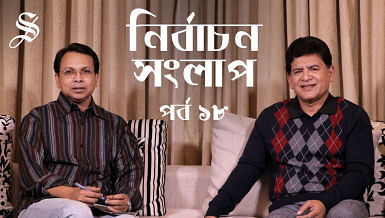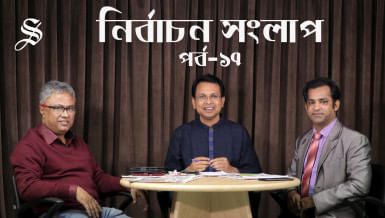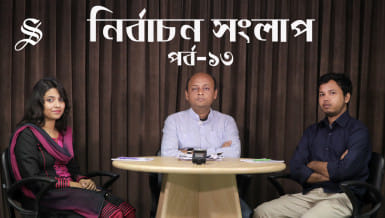A tough competition awaits candidates in Khulna-3 constituency (Khalishpur, Daulatpur and Khanjahan Ali) as around 25 percent of the total voters, consisting of jute mill workers, are still indecisive.
Candidates for the seat are trying to woo around 55,000 jute mill workers, working at 27 jute mills (seven state-owned and 20 private), with various pledges, but the workers said they are more conscious this time and will vote for the candidate who will work for them.
Among the heavyweights, AL-led 14-party alliance's Begum Monnujan Sufian, former state minister for labour and employment, and BNP's Rakibul Islam Bokul, a first-time candidate, are contesting the December 30 polls.
However, economically deprived and frustrated voters of the jute mills are cautious about voting for the “right person” in the constituency, where the number of voters stands at 226,306, with 43,347 enlisting as new voters.
The around 55,000 jute workers and the new voters will play a defining role in determining the winner.
Over the years, Khalishpur, once a vibrant industrial area, has seen dramatic changes with many government and private mills shutting down, forcing many workers to migrate to other areas.
This correspondent spoke to over 20 workers in Khalishpur industrial area this week. They said when it comes to keeping pledges, they neither trust the ruling party nor the opposition as despite countless promises made by the candidates their situation has not improved much.
According to Bangladesh Jute Mills Corporation (BJMC) Khulna, over 25,000 workers have been working in seven state-owned jute mills in the constituency. Of those, Star Jute Mill is situated in Khulna-4 constituency, but most of its workers live in Khalishpur area and are enlisted as voters of Khulna-3.
Aslam Babu, 53, a worker at Crescent Jute Mill, said, “One after another, jute mills are shutting down in Khulna. How will the workers survive?”
“I will vote for the candidate who will be committed to work for us,” he said.
Hassan Hawlader, 54, another worker, said in the last couple of weeks, candidates are visiting them and making various pledges. “I do not trust their promises completely as others have made the same pledges before.”
Zaman Sheikh, a worker at Platinum Jute Mill, said, “I'm neither interested about election nor the candidates. I'm more worried about my survival.”
Shanu Begum and Bilkis Khatun also work at the jute mill as temporary workers. They live at Khalishpur rail line slum.
“We keep on toiling away but our fate remains unchanged,” said Shanu Begum. She said she will exercise her franchise on the election day and vote for the candidate who is labour-friendly.
After a hard day's work, Bilkis was too tired to comment on the issue.
Contacted, Sohrab Hossain, convener of Bangladesh State Owned Jute Mill (Collective Bargaining Agent, non-CBA) Oikya Parishad, said, “The workers demand wage commission, payment of due wages, other financial benefits and 20 percent dearness allowance.” “But none of the candidates want to talk about it,” said Sohrab.
Mamun Raihan of People's Jute Mill echoed him.
Sheikh Ashrafuzzaman, secretary general of Greater Khulna Development Movement Committee, said workers' votes will set the course of election. “Workers live in dire conditions with no civic rights such as education, medical facilities and social security.”
“They are yet to receive any support from policymakers,” he alleged.
When asked, AL's Monnujan Sufian told The Daily Star, “We are for the welfare of the workers. BNP government had shut down Daulatpur and Khalishpur jute mills. After assuming power in 2008, we reopened those.”
“If elected, I will implement the wage commission for jute workers,” she added.
Contacted, BNP's Rakibul Islam said, “Apart from implementing the wage board, I will try to reopen Khulna Newsprint Mill and Hardboard Mill to create employment opportunities, if elected.”
Mentionable, AL won the seat in 1973, 1996 and 2008 elections while BNP won in 1979, 1991 and 2001.



 For all latest news, follow The Daily Star's Google News channel.
For all latest news, follow The Daily Star's Google News channel. 


Leave your comments